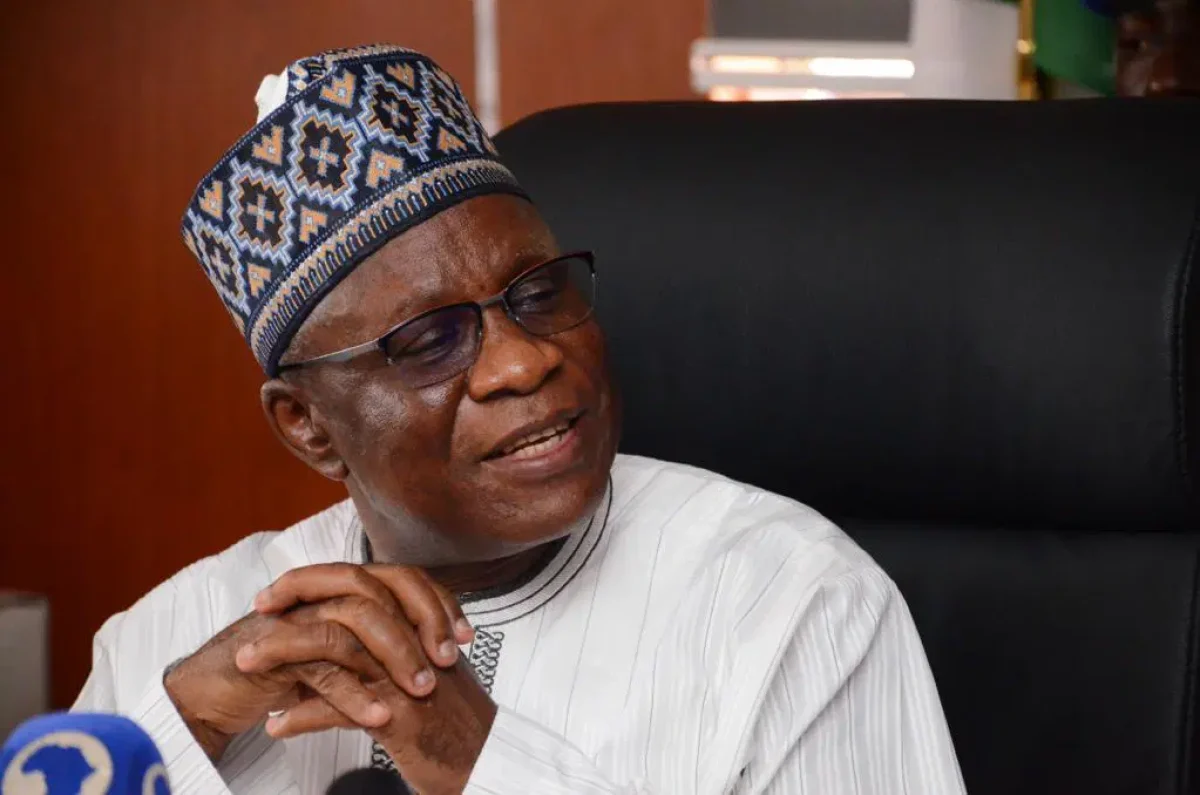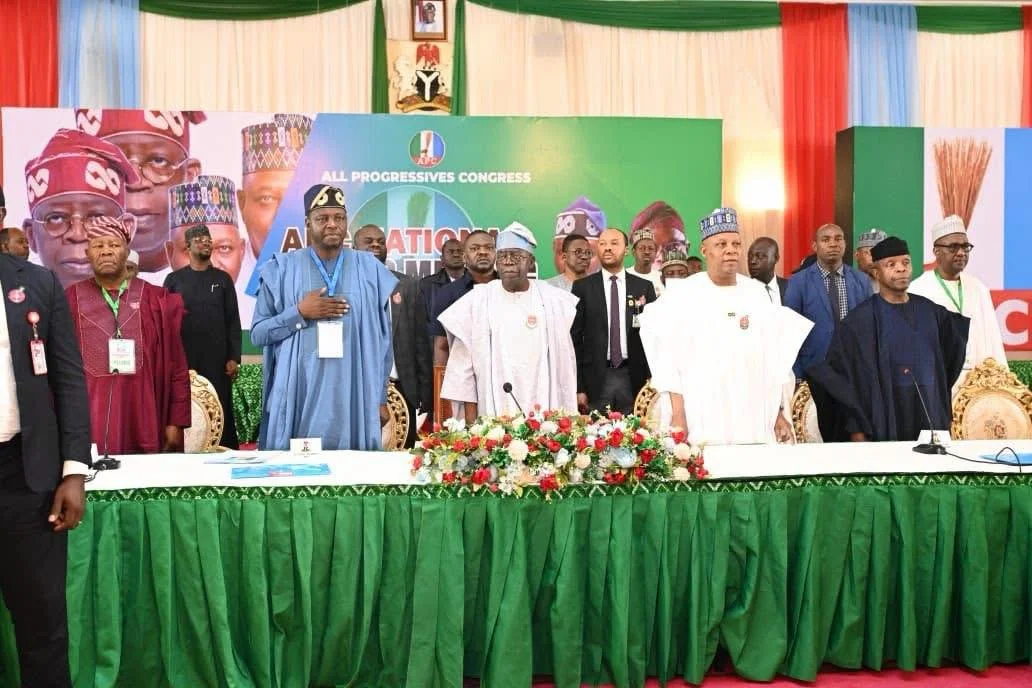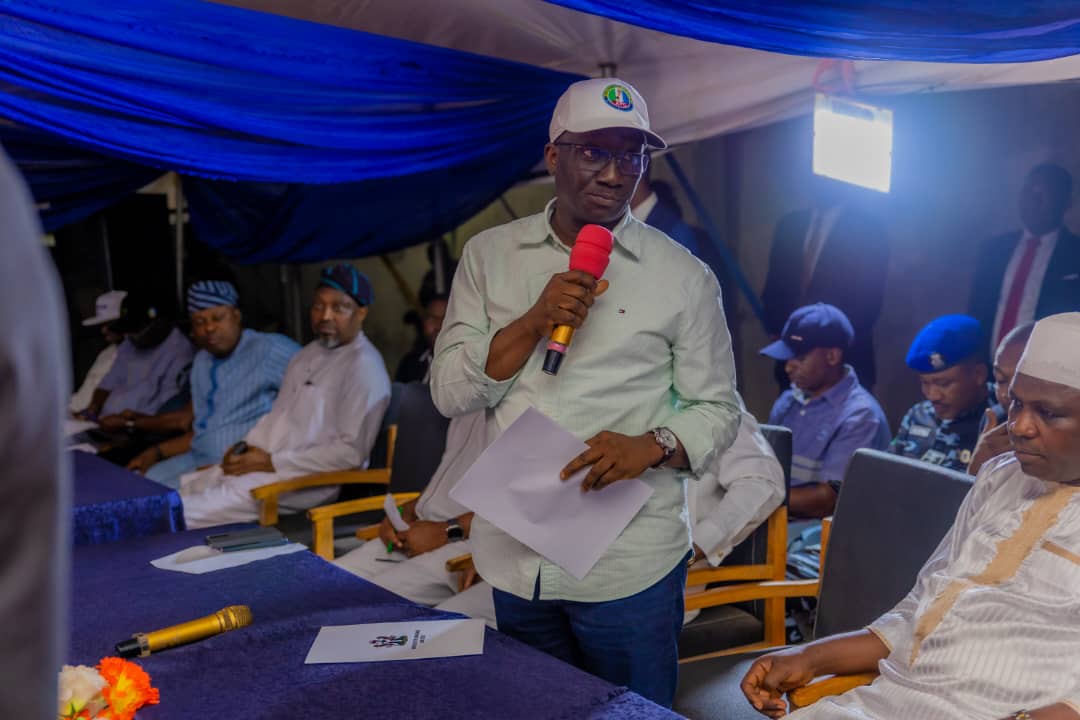The Minister of Regional Development, Abubakar Momoh, says the economic reforms of President Bola Tinubu are bold measures to prepare Nigeria for a future of shared prosperity.
Momoh said this while delivering the 55th Founder’s Day Lecture of the University of Benin (UNIBEN) on Monday in Benin.
The News Agency of Nigeria (NAN) reports that the minister, who is also an alumnus of the institution, spoke on the topic “Reforms for a Shared Prosperity.”
The minister noted that many Nigerians who are feeling the immediate pains of the ongoing reforms might not fully understand why the government had to take decisive action on long‑standing structural distortions in the economy.
According to him, President Tinubu inherited entrenched problems that previous administrations lacked the political courage to confront.
Momoh asserted that the removal of the petrol subsidy on the President’s first day in office was one of the most critical steps to rescue the economy from a system that drained resources and incentivised smuggling, rent‑seeking, and corruption.
“No previous administration had summoned the courage to confront this situation until President Tinubu introduced decisive reforms,” he said.
The minister highlighted the absurdity of selling refined petroleum products cheaply in Nigeria only for the subsidised fuel to be smuggled to neighbouring countries.
He noted that the present administration chose to endure public criticism now rather than postpone tough decisions that would only worsen Nigeria’s economic trajectory.
Momoh also justified the unification of Nigeria’s exchange rate, describing the previous system as one that rewarded arbitrage rather than genuine productive activity.
“Those who genuinely needed foreign exchange could not get it while a few people gamed the system.
“The reforms were designed to restore transparency and strengthen investor confidence,” he said.
The minister highlighted other reforms, including the operationalisation of the Petroleum Industry Act (PIA), the Host Community Development Trust, and ongoing investment in local refining.
He pointed to the Dangote Refinery’s plans to expand production from 650,000 barrels per day to 1.4 million barrels as proof that confidence was returning to the sector.
He also referenced indigenous refinery projects and modular refineries, noting that the government’s new 15 per cent import duty on imported fuel was part of a “Nigeria First” industrial policy aimed at strengthening domestic production.
On the energy transition, he emphasised the Presidential Compressed Natural Gas Initiative (PCNGI) as a key strategy for reducing transportation costs while aligning with Nigeria’s climate commitments.
Momoh also addressed the power sector, revealing that the government had approved the issuance of a N4 trillion bond to clear verified debts owed to power‑generation companies and gas suppliers, part of a broader plan to restore liquidity.
He said revenue collection in the sector rose by 70 per cent in 2024 after regulatory adjustments.
Momoh further disclosed that the Federal Executive Council had approved N68.7 billion for solar farms in eight universities and teaching hospitals, including UNIBEN.
He argued that although the economic transition has imposed hardship, it is building the foundation for long‑term stability.
“The reforms I have outlined, though challenging in the short term, are necessary to build a Nigeria where prosperity is shared, sustainable, and inclusive.
“Nigeria stands today at a difficult yet decisive juncture,” he said.
The minister recalled his personal journey from his days as a UNIBEN student to rising through various levels of public service, including serving as councillor, local‑government chairman, state lawmaker, two‑term federal lawmaker, and now a minister.
He expressed deep appreciation to the university for shaping his life and career.
Earlier in his welcome address, the Vice‑Chancellor of the university, Prof. Edoba Omoregie, praised the minister’s commitment to the university and the nation, describing him as “a worthy ambassador of the institution.”
Omoregie linked the university’s development trajectory to the Federal Government’s reform agenda.
“As an institution, we share in the vision of the Federal Government under His Excellency on sustainable development, captured in his Renewed Hope agenda,” he said.
The Vice‑Chancellor disclosed that UNIBEN had recently benefited from several federal interventions.
“Only yesterday, I received seven more tricycles again to ease transportation on campus.
“Also from TETFund, we received N1 billion for our agricultural development and N5 billion for the Senate building, and so many others—too numerous to enumerate now,” he said.(NAN).




